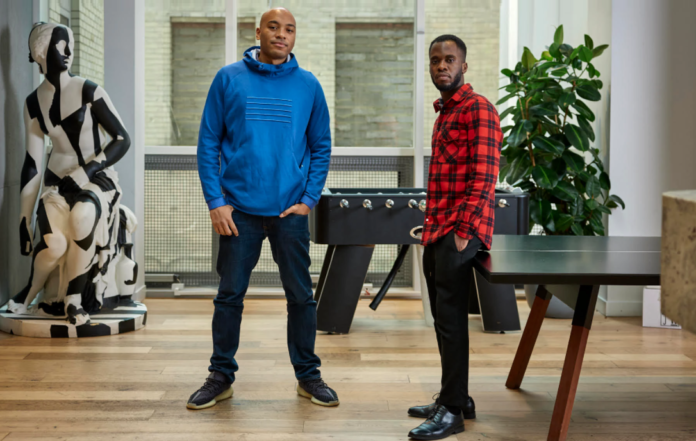AudioMob, the London-based startup developing in-game audio ads, today announces that it has successfully raised €12.1 million in Series A funding. The financing comes after the company opened the doors of its two new offices in London and Abu Dhabi to support the expected accelerated growth.
Lead investors of this round are Makers Fund and Lightspeed Venture Partners. Additional investors include Sequoia Capital and Google, alongside some music artists, which takes the total investment to date €13.82 million. The startup valuation is currently at €95 million.
From kicking off in 2020, founders Christian Facey, CEO, and Wilfrid Obeng, CTO, have seen recent client successes with artists including Ed Sheeran and Nas alongside brands like Intel, Jeep and KitKat who all saw relative metric achievements of more than 1000%. It’s now positioned and tech-enabled in all countries outside of China with notable rising stars being the UAE, Germany and Canada accessing over 40,000 games through its Audio Ad Platform.
The founders of the in-game audio advertising company will use the recent funding to expand the team in London and Abu Dhabi and develop more experimental audio technology, alongside other Heads for key departments. Audiomob will continue to file patents in more countries, build out the team and open up opportunities in other regions and markets.
AudioMob CEO Christian Facey commented: “We’re thrilled to see investors’ excitement for AudioMob’s vision for long term success and our future. We’re on the precipice of innovating a whole industry with audio and now we’re able to build out our tech and team to ensure we’re disrupting the industry in the right way and ensure we eventually become a future tech industry unicorn.”
Wilfrid Obeng, CTO at AudioMob, added: “For the past two years we have been focused on listening to our clients, gathering feedback and improving our audio technology and products. We understand that consumers don’t want to be interrupted, advertisers want their ads to be heard and game developers want to ensure monetisation does not affect retention. And now we have built products which meet all three needs.”




